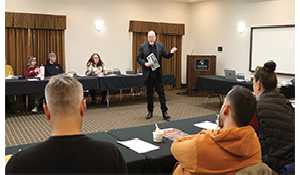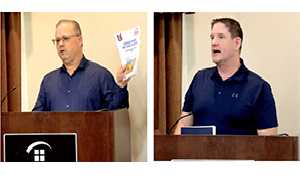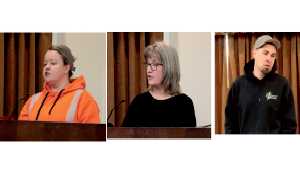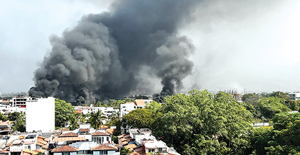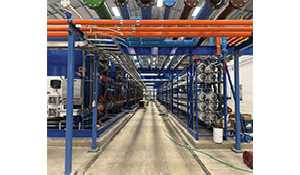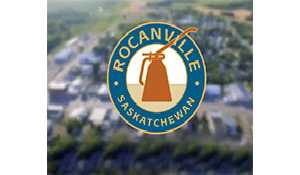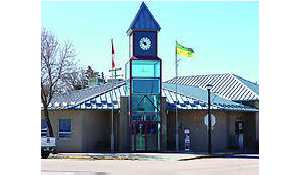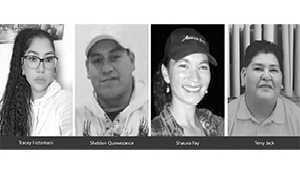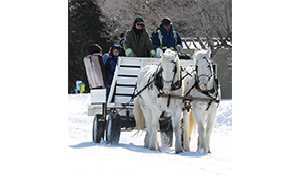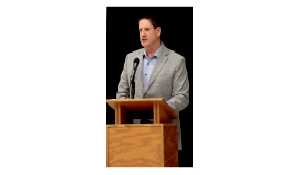Senator Batters on Saturday’s rally: ‘An excellent way for people to have their voices heard’
February 12, 2019, 9:04 am
Kevin Weedmark
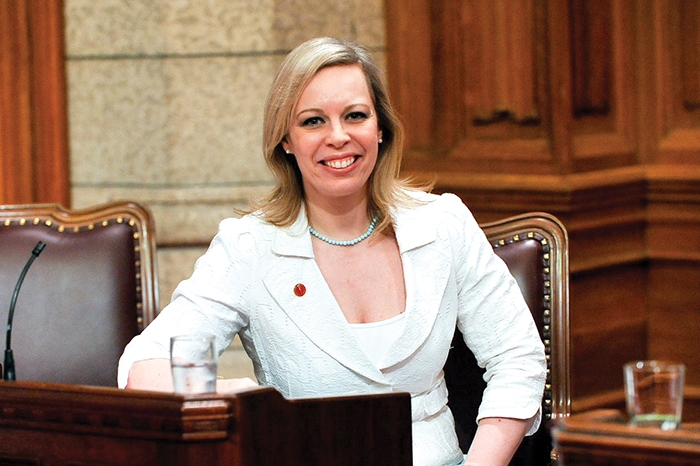

Editor Kevin Weedmark spoke last week with Senator Denise Batters, who will be one of the speakers at the Pro-Resource Rally coming up in Moosomin this Saturday, February 16.
The rally is set for 11 am Saturday at the new IJack assembly plant just north of Moosomin on Highway 8.
The complete interview follows.
How did you get involved in the pipeline rally here in Moosomin?
I’m a Saskatchewan senator so that’s my job, to make sure that I’m participating in important events like that, representing the views of people in my province of Saskatchewan.
One of the most important responsibilities that we have as senators is to do that—especially during the consideration of legislation.
I spoke at the pipeline rally in Regina in front of the legislature in January, and I spoke very strongly against bill C-69 which is basically the anti-pipeline bill, so that is something that they wanted me to come speak about in Moosomin, because that bill is in front of the Senate right now.
When you call it the anti-pipeline bill, in your opinion is it designed simply to prevent future pipeline projects?
I really think that seems to be what it is. We’ve seen with the Liberals consistently, they have no plan to actually get pipelines built.
Frankly, Justin Trudeau bought a pipeline to make sure that it never got built. They have no plan to get that expansion done and you can see that when he spends $4.5 billion of taxpayers’ money to buy a pipeline and then in Bill Morneau’s fiscal update, I think it was in November, he had not $1 allocated to the construction of the expansion of it.
That’s a tell that they’ve done nothing other than buy themselves some time and perhaps to try and get themselves some NDP-leaning votes in the next election. That to me just says that, and the absolutely completely onerous regulations contained in that bill—things that have nothing to do with pipelines, or any sort of project—including things like their gender equality portion they have in there—things that make no sense.
Are you happy that the senate is now going to be touring Canada for hearings on Bill C-69, to get opinions from across the country?
Yeah that was actually something that we in the Conservative caucus pressed very hard for, for the last couple of weeks, because initially the government senate whip, and other people in the Trudeau government as well as so-called independent senators were saying “Oh, I don’t think we need to do that—everyone can just come to Ottawa” or “We’ll do a video conference or something like that.”
This is one of our most important roles as senators, to represent the views of the people of our province.
I’m just one voice and I’m very fortunate to be able to go to Ottawa and tell people in Ottawa this is what the people of Saskatchewan are saying to me, and believe me, they are not happy about any of the things the Trudeau government is doing to Western Canada, including lack of pipeline construction, including the carbon tax, including a bill like C-69 which is just so devastating not just for Alberta but for Saskatchewan, too.
That is an important point as well—so often we’ve heard so much about Alberta and the troubles they are having. Certainly they are, but I always want to make people very aware of the fact that Saskatchewan people have really suffered as well.
So when they had the Bill C69 study starting this week it was really only because of Conservative senators and the pressure that we got Canadians to bring to bear when they heard that there may only be meetings in Ottawa, and very few of them and very little opportunity, and we said “No, we need to go and hear from the people. You need to see them face to face in their communities. The type of communities that are going to be really affected by this type of a bill.”
It was actually Saskatchewan Conservative senator Dave Tkachuk who is the critic of bill C69 for our Conservative caucus, and he insisted that the motion that would allow the energy committee to travel has to include the requirement that the committee has to travel to western Canada, eastern Canada and Quebec, so it couldn’t be short circuited and have a very minimal schedule.
Is the hope to have some of the people who are involved in the industry, who are affected by the industry, being able to present to the Senate?
Absolutely, yes, definitely.
We will anxiously await that because I know whenever I am sitting in any of the Senate committees and we have people that are directly affected by something and not just simply a lobby group or somebody who works in the Ottawa national office for a particular organization, when it’s people who are directly affected, those are the most effective witnesses that we see.
When we can hear from people that have actually lost their job or had to shut their business down—we just see it so often—we need to let the rest of Canada know because I’m not sure how many people in Canada realize how devastating this has been to our economy in Western Canada, including in Saskatchewan.
Moosomin has pipelines to the north and south and would have been an important part of Energy East. What are your personal thoughts on the Energy East pipeline, which was cancelled once the requirement came in for upstream and downstream emissions to be taken into account?
Accounting for upstream and downstream emissions is not required anywhere else, which is totally ridiculous.
I remember the day that was cancelled. It’s just devastating. Justin Trudeau has failed to move one ounce of dirt or build one inch of new pipeline. After he killed Northern Gateway, then he vetoed Energy East and obstructed TransMountain, and because of that we have this lack of pipeline capacity, and it has turned an already difficult economy in Western Canada into a full-blown national economic crisis.
When you see national polls, even people in Ontario and other parts of Canada are realizing this is a big thing. This is not just affecting a couple of provinces, but it’s a full-blown national economic crisis and it’s affecting tens of thousands of jobs. Even in a smaller community like Moosomin it affects a lot of jobs. That’s on top of the 100,000 jobs that have been lost in the energy sector since 2015, so it’s really devastating.
I think Canadians are starting to wake up, and believe me they’re really going to wake up when they see this truck convoy that is going to go through Moosomin and end up in Ottawa. That will wake people up, no doubt.
Do you see Bill C-69 as the main impediment to pipelines in the future or are there other things that would have to change to make the circumstances right for new pipeline projects to move forward?
There are many different things. Andrew Scheer, our Conservative leader, who is from Saskatchewan, and keenly understands what we have going on in Western Canada, and the issues we have, and what we need to do, actually put together in September our plan to fix Trudeau’s pipeline failures. In that he had step one, what Trudeau should do now, step two, what a Conservative government would do when we are hopefully elected in October.
One of the things is repeal the Liberal carbon tax, also if that anti-pipeline bill, Bill C-69 passes, repeal that. Hopefully it won’t come to that, but with a senate that has been loaded up with Trudeau’s “independents” it seems that might have to happen as well.
There are a few different bills that are in front of the Senate right now that are really dangerous for Western Canada. One of them is an anti-oil tanker bill, but it only applies to the West Coast of Canada, not the East Coast. No problem to bring in all these tankers bringing oil from places that don’t have the kind of human rights record or environmental standards that Canada has, but they’re worried about the ones on the West Coast exporting Canadian oil.
All of those things need to be fixed. We need legislation that will clarify the roles of pipeline proponents and governments that are involved in this, and make sure that we use the federal declaratory power to declare a major project for the general advantage of Canada under the constitution, where it’s necessary for future projects, so we don’t have these kinds of situations.
Right now we have this anti-pipeline bill which allows standing to be given to anybody, and have all these foreign interests coming in. We’re allowing foreign-funded interference in regulatory hearings.
Investors need certainty and they need approval of timelines and schedules, not the type of obstruction the Trudeau government seems to be providing at every turn.
We can’t forget one thing, and that is that this has been Justin Trudeau’s plan along. He said at one point that he wants to phase out Canada’s energy sector. It seems that that’s what he’s trying to do.
What’s the main point you will be trying to get across when you come to Moosomin?
I will mainly be talking about Bill C-69 and letting people know how they can actually help on this.
Right now, Conservative senators only have about a third of the seats, so we don’t have the majority and we can’t control whether a bill passes or fails.
What we need to do is encourage people to tell these Trudeau-appointed senators, including people from Saskatchewan, who are supposed to represent their region, that they need to change their priorities, because in December, when we had the vote on C-69, to send it to committee and vote on second reading, which is voting on the principle of the bill, of the six senators from Saskatchewan, it was only the three Conservative senators who ended up voting against the bill.
The other three—two so-called independents who are newly appointed Trudeau senator Marty Klyne from Regina and Pamela Wallin who is now an independent, voted for it, as did Lillian Dyck, a Liberal senator from Saskatoon.
They’re choosing Justin Trudeau over the livelihoods of people in their own province.
I think it’s effective when people from their regions phone them, phone their offices and tell them “We need you to reorganize your priorities and make sure you’re standing up for the people of our province,” because there are so many people who are affected by this. People have lost their jobs. People have had to shut their businesses down, people are dramatically affected by this, and they need to know that.
What effects do you think you will see from rallies like this? Do you think there is some impact they will have?
Definitely. I really think that there is. To have not only the premier of the province coming to it, but also the national leader of the Official Opposition—that in itself will get some significant media attention, which is warranted, because this is a large issue, and people need to know what a big issue this is for people out here and it’s not just something they think about once in a while, it affects them every single day.
We’ve just seen too much from this Trudeau government. They’re totally out of touch. They have no idea what life is really like here. We had the Prime Minister proclaim just this week that low-income Canadians don’t pay tax. He is so out of touch.
They really need to hear from the people and this is an excellent way for people to have their voices heard and to know that we are fighting for them. We in the Conservative caucus are fighting for them every day. Tweet


